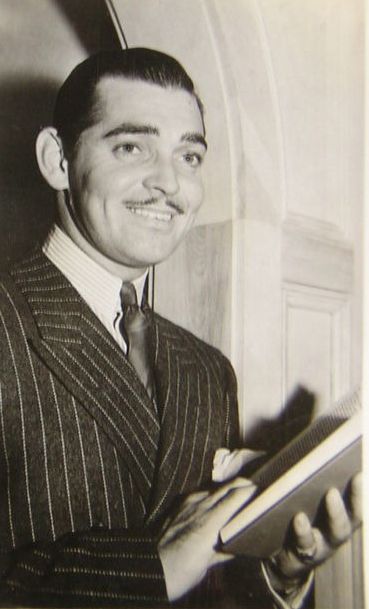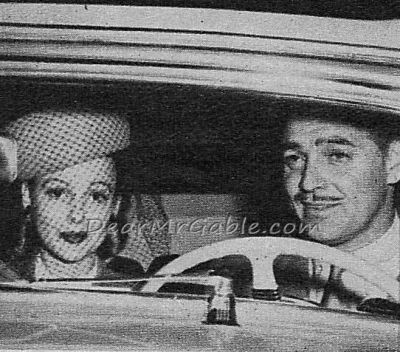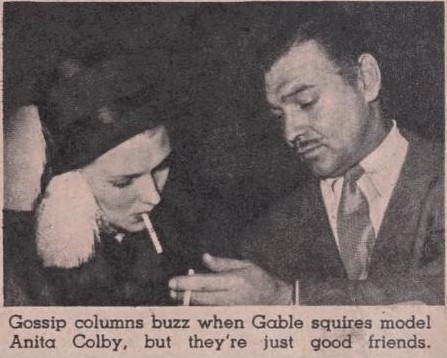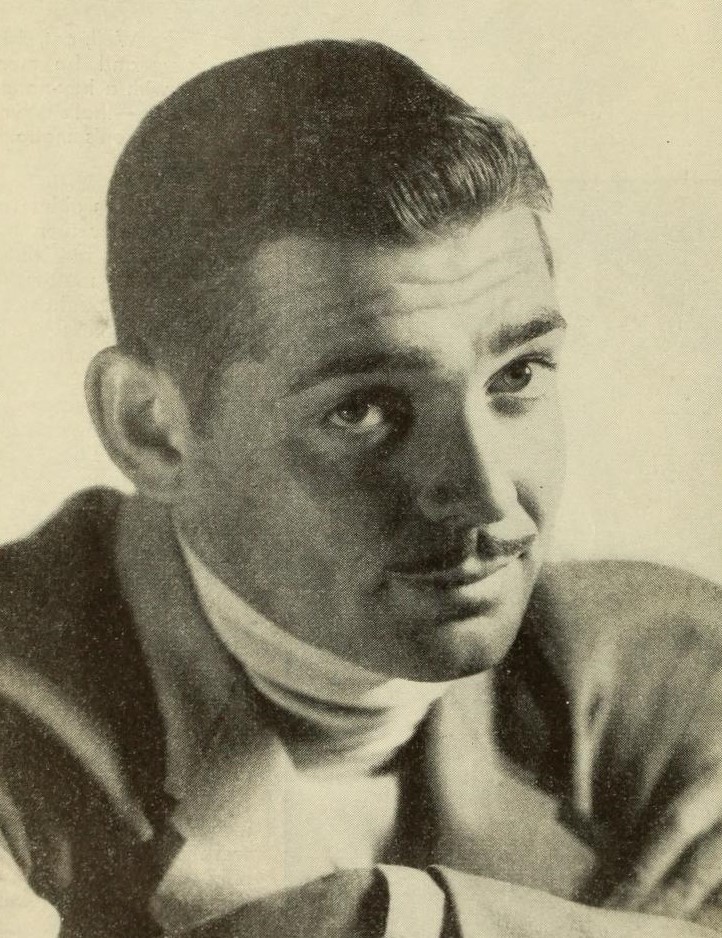{New Article} 1934: Are Women to Lose Clark Gable?
This article is from 1934 when Clark was the #1 heart throb, and it threatens that he may be jumping the Hollywood ship! Gasp! Eh. This one is really PR and I am pretty doubtful about most of the quotes in it as they don’t really sound like him.
Women have idolized him, and women have made him what he is today. “So what?” asks Clark. What matters except living his own life again? He wants to escape from Hollywood and all that it means. He had time to think it all over, when he was ill!
Clark Gable told me, “If I had enough laid aside so that I would have a sure income of a hundred dollars a week, I’d leave all this in a moment. I’ve said that before. But I know now that we never get all we want out of life, so I’ll probably never get all of that hundred dollars a week. So when I get a part of it, only a small part—“
In other words, the moment that Clark Gable gets enough of that hundred dollars a week to protect him against starvation, plus enough to protect his family, he is leaving. He’s going to live life as he desires, rather than as Hollywood, movie audiences, and perhaps even those closest to him desire.
“I’m bored. I’m fed up. I’ve lost my ambition. I just work here now. I do my work as well as I can, but I don’t worry about it. I used to read everything that was written about me, but now I don’t care what they say. The moment a picture is done, I jump into my car and dash away from everything. I go alone, hunting, shooting. Motion pictures are just a job to me—the same as any other job!”
We have heard other actors say similar things. We have elevated our noses a little higher. “Talking for effect. Biting the hand that feeds ‘em. If they had their Hollywood chance taken away, we’d see how much they wanted it.”
Therefore, it’s difficult for writers to convince even themselves that an actor is sincere when he makes such a statement. Clark Gable doesn’t try to convince me. He didn’t care whether I believed him or not. Perhaps that’s one reason why I do believe him. Another is: Rita Gable [sic], his wife, confessed in a casual conversation that she is worried about Clark. “he’s not interested in all this—not as he used to be,” she said.
He comes across as sounding bored and spoiled, which is a strange PR angle and again, doesn’t sound at all like him. The last thing he was was unappreciative. Humble, yes, but not unappreciative.
Of course, Clark has never become a true Hollywoodite as most actors do. He has always been a bit indifferent to the fame and the glory and the adulation given him. He told me once, “I am paid not to think,” and behind the remark was a restlessness, a disappointed nervousness that said, more plainly than words, “What’s a man doing in a game where he’s paid not to think?”
But at the time he made this particular statement, he was content with thought, “At least, I am paid not to think!” And the word “pay” came before the word “think.” In other words, his salary of four figures a week was compensation for being in what he felt—way deep in his heart—was not a man’s game. But today not even pay is adequate compensation.
“Of course, lying in the hospital had a lot to do with it,” he explained. “As I told you, I was paid not to think in Hollywood, so I didn’t think. But after that operation—eight weeks! There are only two or three bad days and you don’t remember them, anyway. The rest of the time, you think. You lie there, alone. You know that you very nearly didn’t live and—well, only life and death seem to matter. You’ve escaped death; you have life. So what?
“And you think back to the days when you were ‘down there.’ And now you’re ‘up here.’ So what? What have you gained—besides having things a little easier? And after you get them a little easier—what then? That’s what I asked myself again and again in that bed: ‘So what?’
“The real values of life are better ‘down at the bottom’ than ‘up at the top.’ And down there, you have hopes, expectations. You keep thinking of the thrill you will have when you get ‘up there.’ And then you get there and there isn’t anything to long for and yearn for and have visions about. So what?
The “Paid Not to Think” reference is from this article from 1932 that Ruth Biery also wrote. Again, I don’t know if this is just a bad day of his or just a weird PR peice. I suppose maybe they were trying to poof up this image of “Clark Gable isn’t like snooty Hollywood stars, he’s just like you!” And soon…he might run off and leave you with no more Gable on the screen! Flood the office with letters protesting this!
The article also goes into some detail of how he got his big break, how Ria convinced him to stay and make movies, how Jane Cowl is responsible for his career (all false.)
You can read the article in its entirety in The Article Archive.



